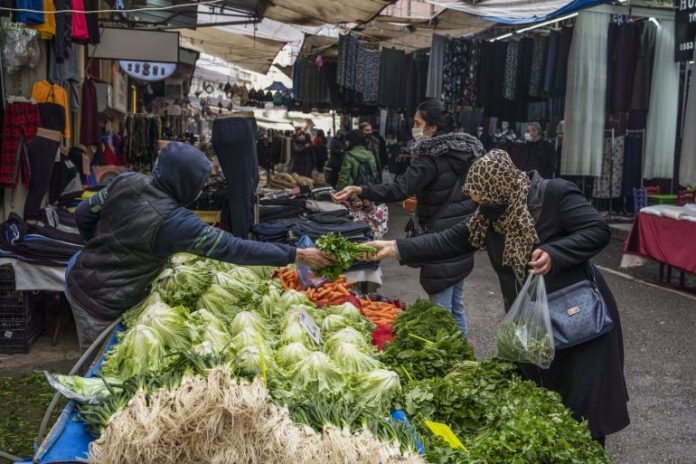Turkey’s annual inflation rate remained steady at nearly 60 percent in the past month, according to official data released on Thursday, providing initial evidence that President Recep Tayyip Erdogan’s shift in economic policy was having an impact.
The Turkish state statistics agency, TUIK, reported that consumer prices increased by 61.5 percent over the 12-month period ending in September.
This rate was 58.9 percent in August and 47.8 percent in July. The month-on-month price increase slowed to 4.8 percent in September, down from 9.1 percent in August and 9.5 percent in July.
These figures suggest that Turkey’s inflation rate may be peaking, following a series of significant interest rate hikes signed into policy by Erdogan, which increased the policy rate from 8.5 percent to 30 percent in just four months.
Shift in economic policy
Capital Economics analyst William Jackson noted, “The small (by Turkey’s recent standards) rise in inflation to 61.5 percent last month, from 58.9 percent in August, provides the first signs that the inflation spike is close to leveling off.”
Erdogan had previously supported the unconventional economic theory that high-interest rates caused inflation.
However, he shifted his approach after a challenging May election coincided with a severe economic crisis.
He then entrusted Turkey’s economic management to a group of technocrats with experience on Wall Street and broad support among foreign investors.
Finance Minister Mehmet Simsek played a key role in persuading Erdogan that a radical change in direction was necessary to avoid a systemic crisis.
Turkey’s annual inflation rate reached 85 percent in October of the previous year, but it started to slow down due to statistical anomalies caused by the “base effect,” where high levels of inflation appear small compared to even higher rates recorded 12 months earlier.
In June, the annual rate dropped to an 18-month low of 38.2 percent.
Simsek’s economic overhaul included steps that contributed to a short-term increase in prices.
The government allowed the Turkish lira to depreciate by 27 percent against the US dollar, raised taxes to fund election campaign promises, and reduced burdensome regulations to enhance transparency in economic management.
While factors such as negative real interest rates, substantial wage hikes, tax system reform, and a weak lira have fueled inflation in Turkey, the monthly rise in prices has been exacerbated by soaring food and oil prices, according to analysts.
Despite these challenges, Standard and Poor’s upgraded its long-term outlook for Turkey from negative to stable, citing confidence in the new economic team’s ability to rebalance the country’s economy by 2026, assuming no renewed political uncertainty.

